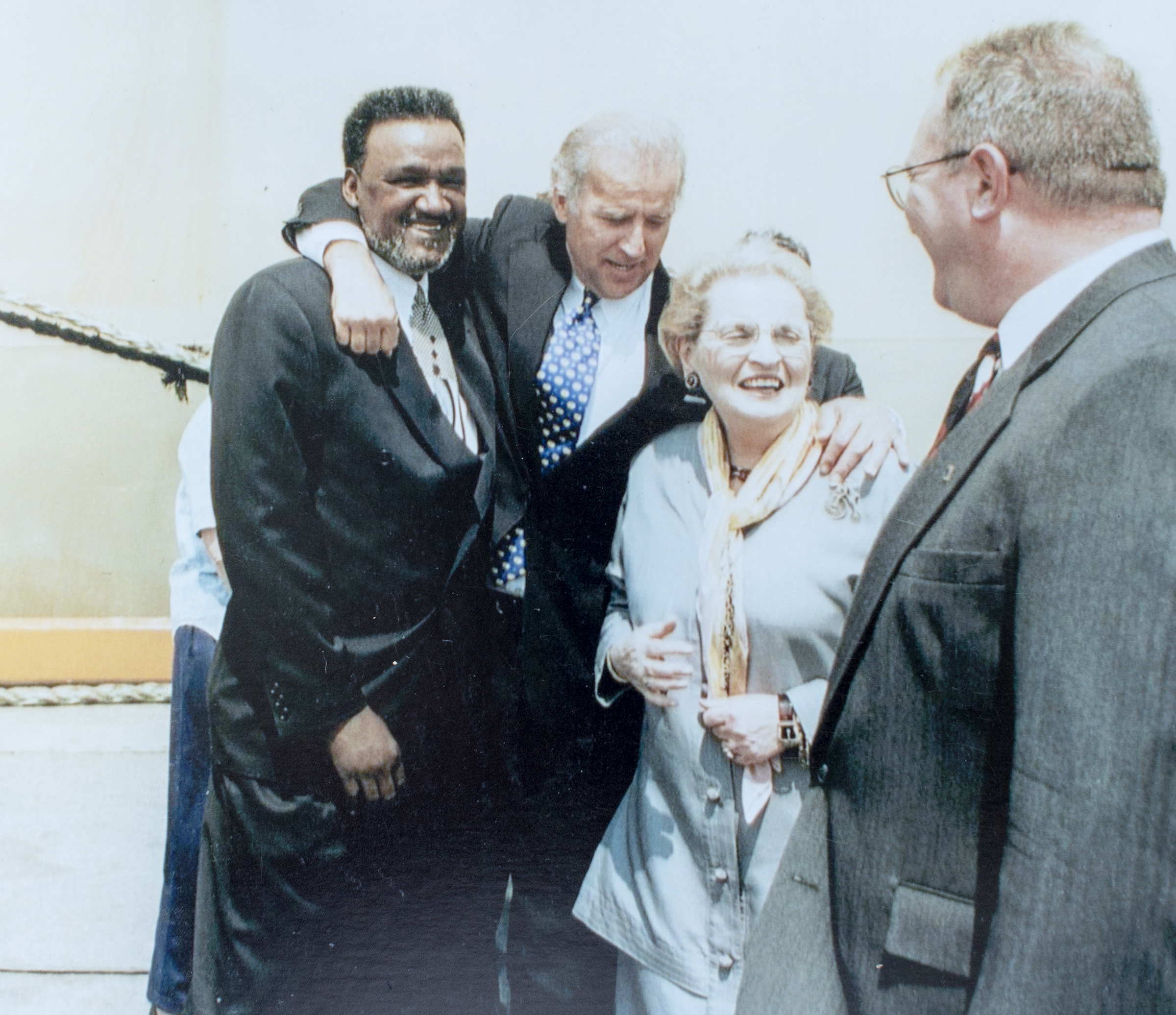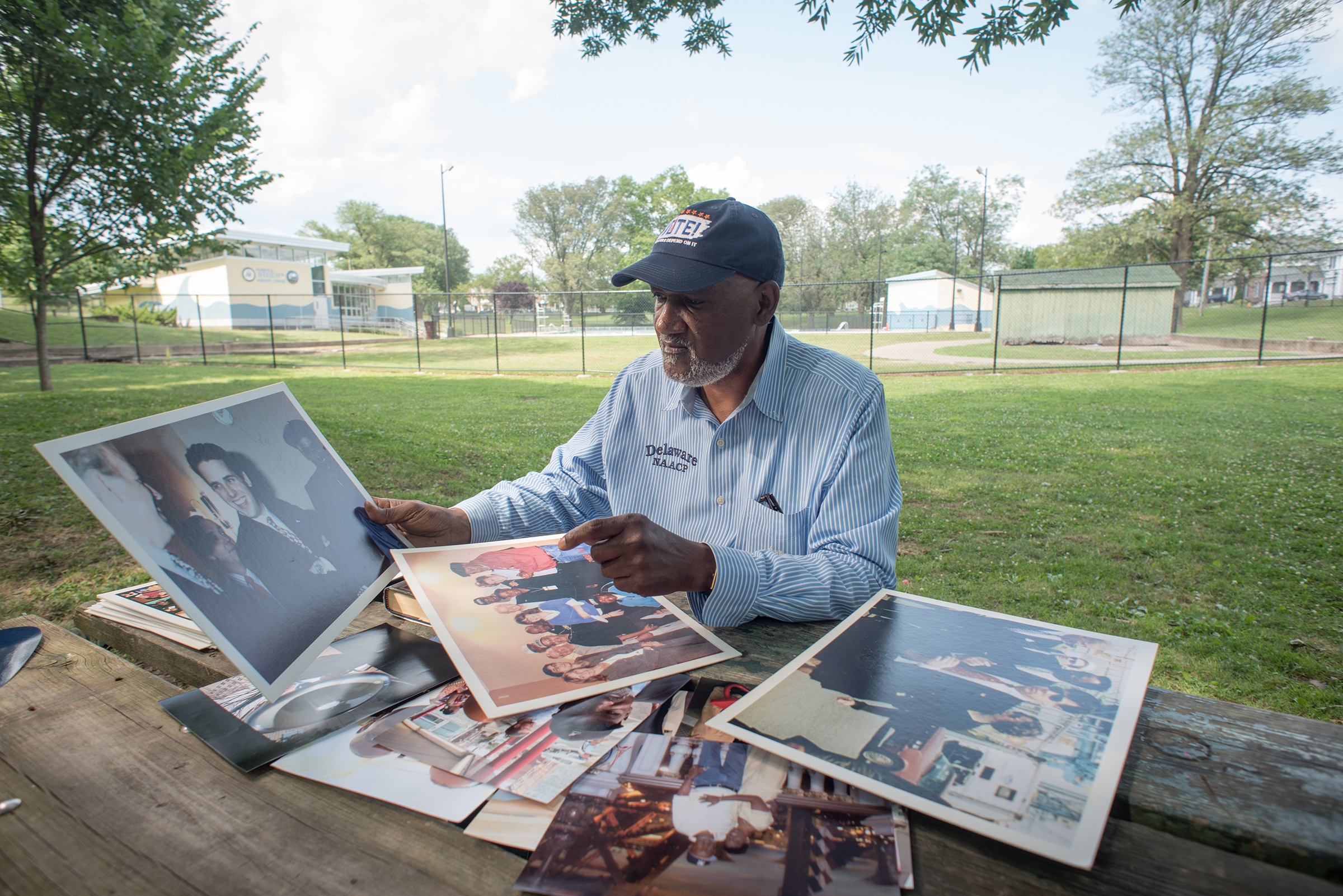
I met Joe Biden in the early 1960s. He was 19. I was 14.
I was raised in a poor, poor Black family. At home, I had no food at the table sometimes. In those days especially, most folks were afraid to come to a neighborhood like mine. But Joe was not.
He was a lifeguard at my swimming pool. I remember him smiling as he walked in.
Joe was only one of three or four white teenagers who would come hang out on this side of the tracks. We’d play basketball and softball, and we’d swim together. He was a person we could trust; he was like a family member.
One day, a man named Cornpop was bouncing on the diving board. It was against the rules, but we were young and we loved breaking rules. Joe, however, blew his whistle at Cornpop.
Now there were many gangs at the swimming pool and Cornpop was supposedly the leader of one of the “baddest” gangs in town, called the Romans. But Joe didn’t back down, and Cornpop was not happy about it. I remember Cornpop threatening Joe, saying his gang would cut him up.
I ran up to Joe and I said, “Man, don’t worry about it. Just go home. You’re O.K.” We knew, as a Black community, that we couldn’t put our hands on white folks. So, to avoid trouble, I told Joe, “Go on home. Come back tomorrow.”
I was a gang leader back in the day. I was not scared of other gangs, and I surely wouldn’t let Cornpop, or anyone, harm my new best friend.

That was the kind of amity Joe and I shared at that age. What I didn’t foresee was the beginning of a lifelong friendship. In many ways, Joe became a mentor. He forever shaped who I am today. He changed my life.
When Martin Luther King was assassinated in 1968, our state of Delaware was up in flames. Rioters stormed the cities. But I watched as Joe sat down with politicians and pastors to figure out some way to bring peace to Wilmington, which was under siege by the National Guard. Joe was a healer. He brought love, care and respect into our community.
Joe received the Martin Luther King Award a few years later at Ezion-Mount Carmel, a nearby church. He came out of the church, crying. “Mouse,” he said. (My friends call me “Mouse.”) “I haven’t done enough for the Black community. I need to do more.”
Joe had already done a lot for us, but seeing how much he meant to the Black community reinforced his dedication to civil rights. He had always recognized that racism plagued our communities, and that we as Black folks were not getting our fair share.
He promised me that we would always have his ear. He promised me we’d always have a seat at the table. And Joe, as a politician and as a friend, never made promises he would not keep. When folks asked for help, he’d always get back to them. And if there was ever anything he couldn’t do, he was always honest about it.
In 1984, on a snowy Saturday morning, some 300 or so people attended my wedding. The plan was for Councilman Gary Hutt to be my best man, but at the last second, Joe, who was now a U.S. senator, stood up and politely moved him aside. Joe looked at the crowd and said, “I’m Mouse’s best man.”
For much of my life, I got to experience the kind of person Joe really is. Joe cares about people. He feels the pain that other people feel. He wants to change people’s lives for the better, even though it can be strenuous in politics.
On Tuesday, I hugged my friend goodbye before he departed for Washington, D.C. The Secret Service was not too happy with me. Joe said, “Man, you’re gonna get me in trouble!” But it’s incredible to think how things have changed, from the swimming pool to the White House. It just makes you realize how any of us can achieve anything.
I have no doubt that President Biden will be the President Americans so desperately need. In my mind, he’s been ready to be President since he was 29 years old! But in all seriousness, I know that in his heart he believes he can make the changes necessary for our nation, from racial justice to education, health care to climate change.
Joe, as a politician and as a friend, never made promises he would not keep.
It is said that our democracy is only as strong as the American people themselves. President Lincoln himself warned that a house divided cannot stand. We have to realize that the health of our country will never be saved by retreating to our opposite corners, and President Biden understands that. He understood this since the day he crossed those tracks to come to our Black swimming pool.
As Senator and again as Vice President, Joe asked me to go find Cornpop. He wanted to offer an apology for the confrontation at the swimming pool back in the 60s. Joe wanted to make peace with Cornpop. So I went to go look for him both times back home in Delaware, only to eventually learn that Cornpop had already passed. I share this story because it reflects greatly on the character of our newly inaugurated President. He’s a man of decency and tremendous integrity.
When I said goodbye on Tuesday, I didn’t know whether to call him President Biden or President-elect, or Joe. To me, he’s always been Joe. But now he’s more than that. He’s the 46th President of the United States.
More Must-Reads from TIME
- Cybersecurity Experts Are Sounding the Alarm on DOGE
- Meet the 2025 Women of the Year
- The Harsh Truth About Disability Inclusion
- Why Do More Young Adults Have Cancer?
- Colman Domingo Leads With Radical Love
- How to Get Better at Doing Things Alone
- Michelle Zauner Stares Down the Darkness
Contact us at letters@time.com